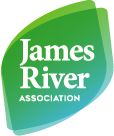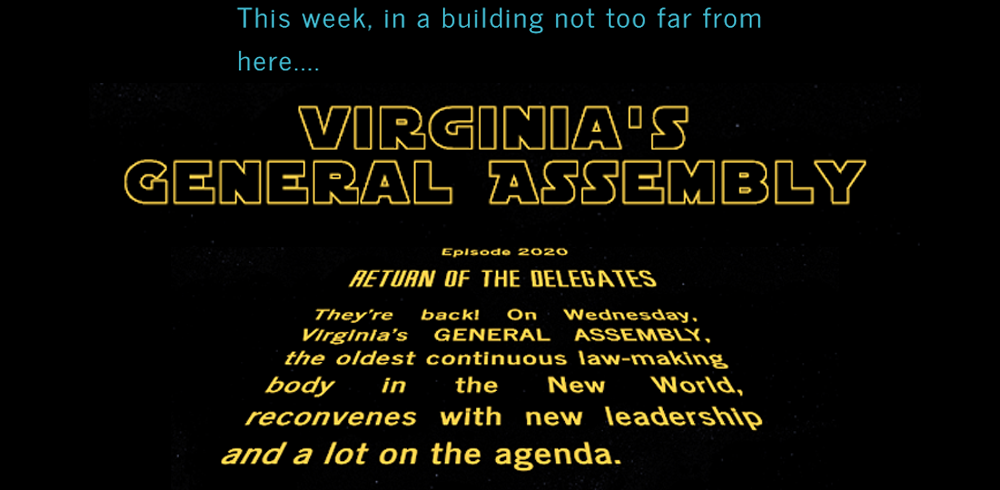Today marks the start of the 2020 General Assembly session. Our representatives will have 60 days to get through a packed agenda, including a new two-year budget and a long list of priorities from the legislative body’s new leaders.
2019 was a great year for clean water at the Capital. With your support, the James River Association backed legislation to clean up contaminated coal ash and secured a budget with unprecedented funding for agricultural conservation practices. It will be tough to beat last year’s success. But as Han Solo might say, “never tell us the odds!”
JRA’s priorities for 2020 are just as bold and you can help!
JRA’s 2020 River Agenda
1. Secure at least $400 million in funding for clean water and land conservation programs.
Governor Northam’s budget proposal includes record-breaking funding for protecting our natural resources, and would put us on the path to a healthy James River and restored Chesapeake Bay by 2025. We’ll be working with our partners to get this proposal across the finish line with the following initiatives:
- $180 million for the Stormwater Local Assistance Fund to tackle polluted runoff and localized flooding in urban communities,
- $120 million for wastewater treatment upgrades so that all waterways receive the same standard of protection,
- At least $90 million for the Virginia Agricultural Cost-Share Program to help farmers install conservation practices and restore their local streams, and
- $40 million for Virginia’s Land Conservation Foundation to protect farms, forests, parks, and other natural areas for future generations.
2. Reduce bacteria pollution by fencing livestock out of all streams by 2025.
Farmland covers almost 12% of the James River watershed and is one of the largest sources of polluted runoff. Virginia farmers have made substantial progress installing conservation practices like cattle fencing, which keeps livestock — and their waste — out of our waterways. But to meet our Chesapeake Bay goals and reach a grade-A James River, we need to pick up the pace and encourage all farmers to keep cows out of their streams by 2025.
3. Protect our waterways from hazardous chemicals stored in above-ground tanks.
Throughout Virginia, thousands of manufacturers and other businesses store potentially hazardous chemicals in above-ground storage tanks, but we lack comprehensive safety regulations for these tanks. Spills could pose a substantial risk of harm to public health and natural resources, including sources of drinking water like the James River. We need a strong regulatory program for above-ground tanks storing hazardous chemicals that requires registration, reporting, safety specifications, and spill prevention and response planning.
With your help, we can make 2020 a great year for clean water at the General Assembly!
Do. Or do not. There is no try. – Yoda

